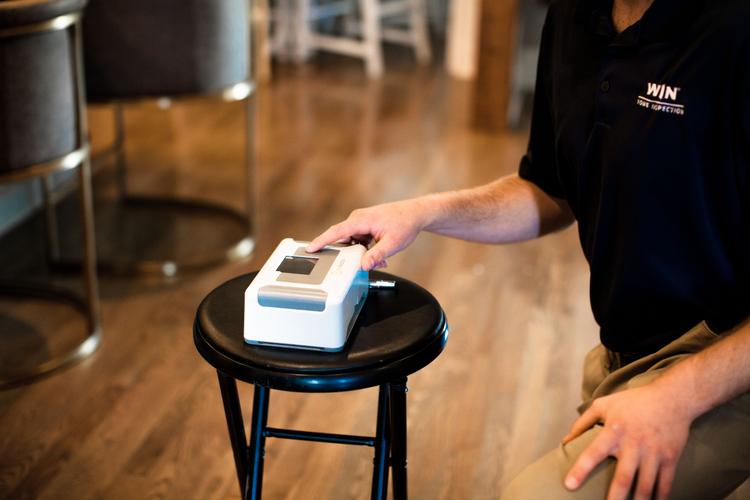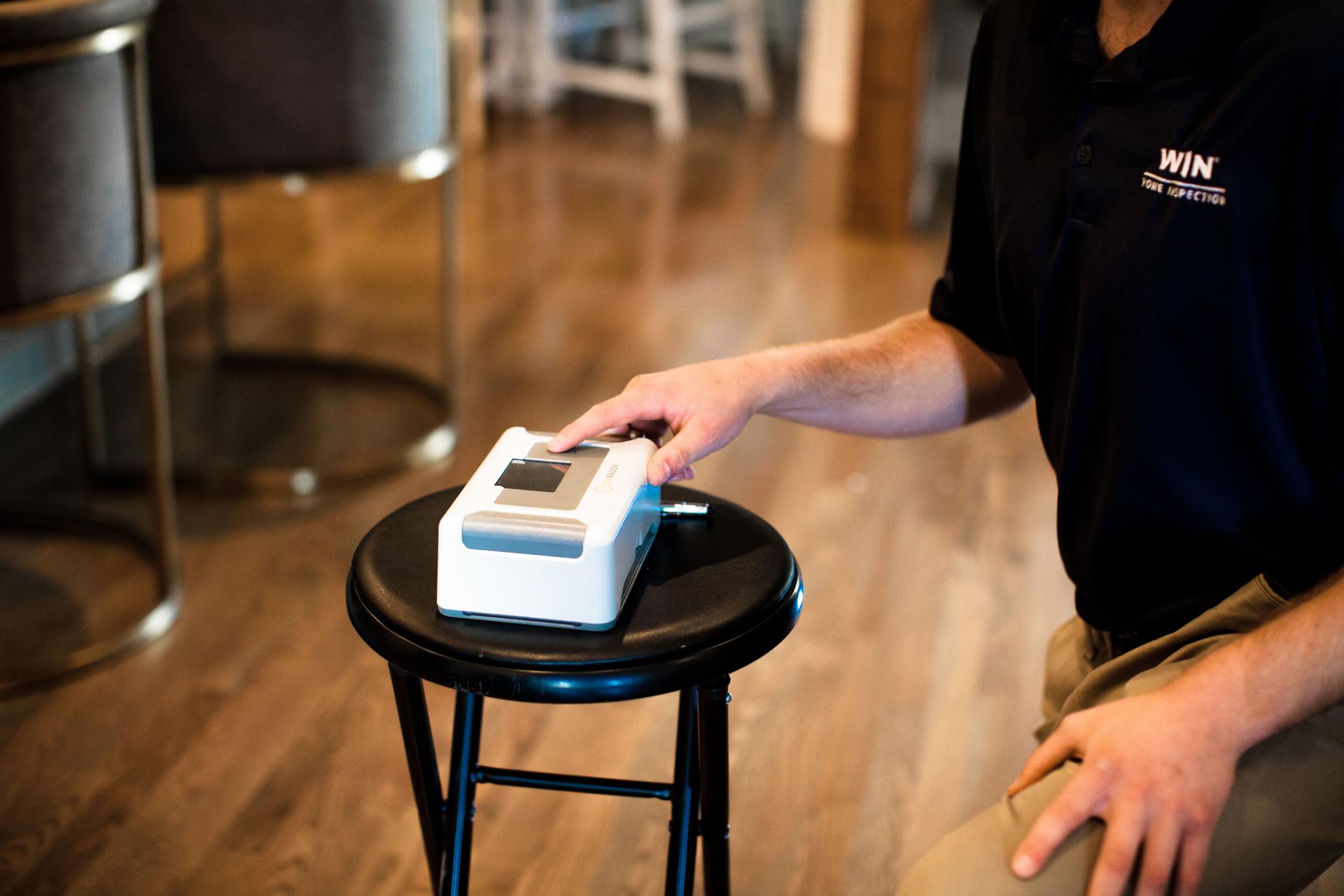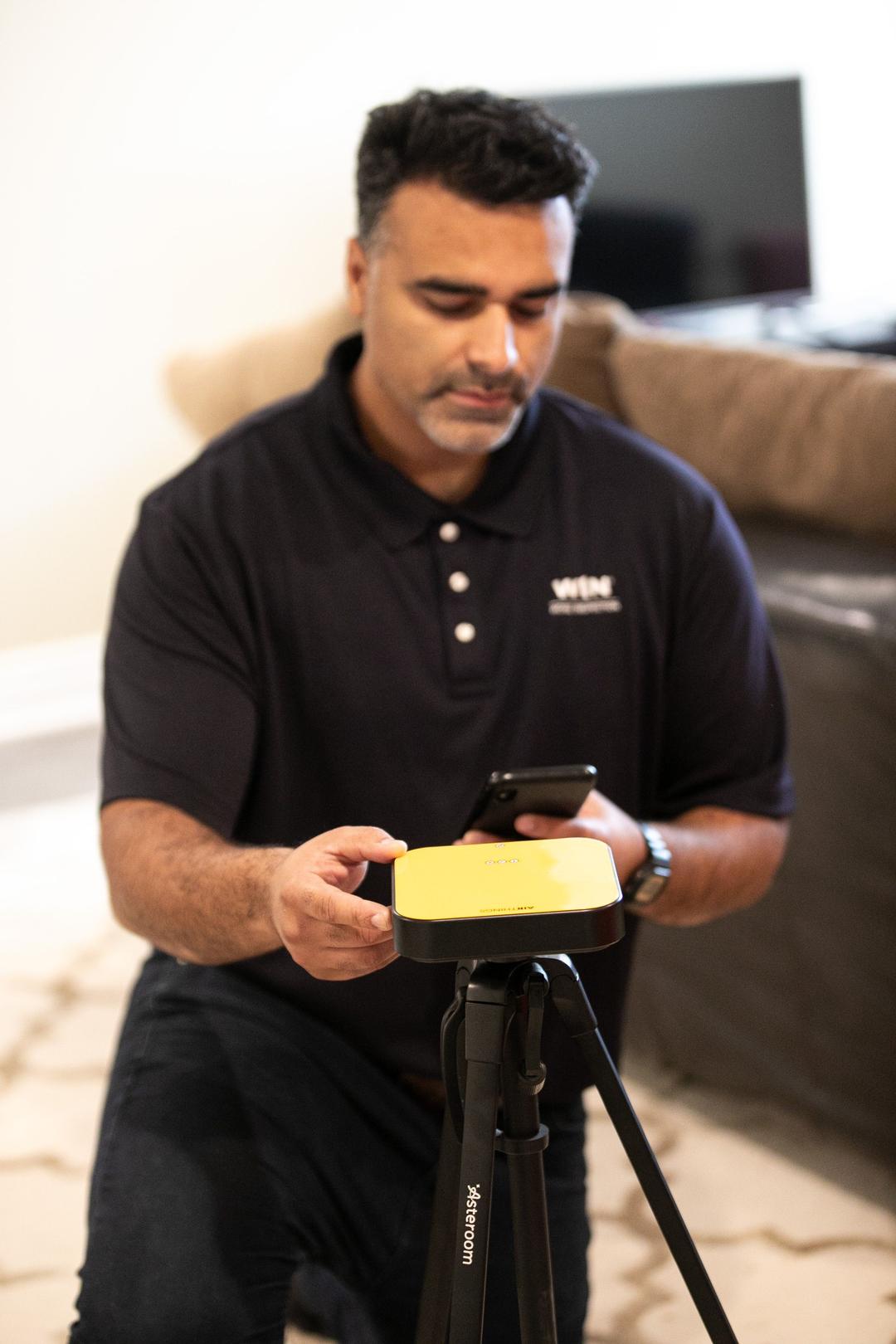1 in 15
Homes have a higher than acceptable level of radon.
6 Million
Homes in the U.S. have radon levels above the recommended mitigation level.
21,000+
Deaths every year occur as a result of prolonged exposure to radon.
Protect Your Family from the Deadly Effects of Radon
Radon is the leading cause of lung cancer among non-smokers.
Why Get a Radon Test
with WIN?
The U.S. Environmental Protection Agency (EPA) recommends having your home tested for radon every two years. This is essential because radon can be prevalent in all homes in any region of the country and of any age. No home is immune to radon infiltration. A Radon Test is designed to identify even low levels of radon in your home to help you safeguard your health and reduce your risk of lung cancer and other respiratory illnesses.
Benefits of a Radon Test
How Does a Radon Test Work?
During a Radon Test with WIN, our expert inspectors perform a comprehensive test to determine the levels of radon present.
STEP 1
Set Up the Detector
First, we’ll strategically place our radon detector in an appropriate area of the home, depending local regulations and the layout of the home.

STEP 2
Wait for Two Days

STEP 3
Analyze the Results

STEP 4
Receive a Comprehensive Report

Clients also searched for
WIN performed a Radon Test on our home. The experience was easy from start to finish. Communication was great, WIN was very knowledgeable, and the investment was very reasonable. We would highly recommend WIN and will be calling them for future needs.
I recently purchased a home. Being an out-of-state buyer, it was a challenge to juggle the multiple steps of buying and closing a home. WIN Home Inspection did an excellent job with their detailed home inspection report. I opted for the additional Radon, Infrared... Read More













